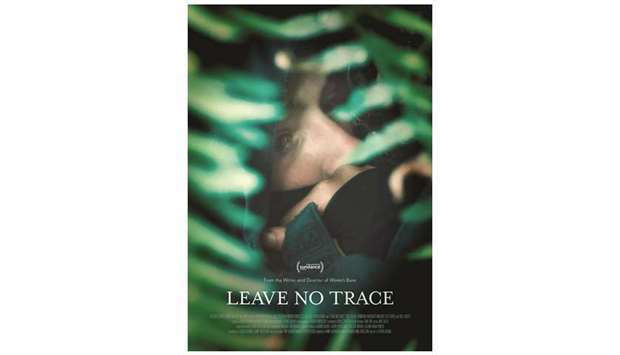Intense character actor Ben Foster, stars as Will, opposite young actress Thomasin Harcourt McKenzie as his daughter, Tom. The pair lives an unconventional, impermanent life in the verdant woods on the outskirts of Portland, Ore. Within this lush paradise, Granik introduces us to their home life, their routines and rhythms, small pleasures and hypervigilance. They scavenge for greens and mushrooms, read, play chess, scare of packs of animals away and practice drills to hide from the park rangers and police.
The screenplay by Granik and Anne Rosellini is based on Peter Rock’s novel, My Abandonment, and like Winter’s Bone, it is a study in efficiency, achingly spare but telling in all the right ways, leaving space for the actors to inhabit fully realised and starkly realistic characters. Just as Granik carefully shows us their life, she parcels out Will’s past. A trip to the VA to pick up prescriptions, a tattered New York Times he carries that bears the headline ‘In Unit Stalked by Suicide, Veterans Try to Save One Another.’ Working at a Christmas tree farm, the one shot he gives at a ‘normal’ life, he hunkers down between the trees, curled into a ball, as a helicopter hovers overhead, chainsaws and machines whining.
Leave No Trace is a film about living with mental illness, and about living with a person who has mental illness. Tom carefully and gently parents her father as much as he does her, if not more so. When they are flushed out of their small but adventuresome life in the forest, Tom adapts. She’s nearly feral and under socialised, but she always finds an animal to curl up to. Her quiet insistence that they make a stable life somewhere, anywhere, grows as her father increasingly cannot cope with the structures and authority of life inside society.
Foster’s naturalistic intensity fits so perfectly into Granik’s sparse, evocative style that the collaboration seems fated. But it’s McKenzie who owns the film as the fragile yet hardy Tom. McKenzie gives her a wide-eyed yet knowing innocence. Her survival skills are unmatched if her social skills struggle, and throughout the course of the film, we watch her start to listen to and trust herself. Although untamed, she’s self-possessed, her strength delicate but mighty.
Although dangerous and difficult, life on the edge in Leave No Trace seems good, simple and rich with hard-fought beauty. But perhaps it’s not Granik’s perspective that has shifted, but ours, as viewers. When civilization feels threatened, starting over in the woods seems not only appealing, but maybe even necessary. Especially when seen though Granik’s discerning eye. How lucky we are to have her work. – TNS

